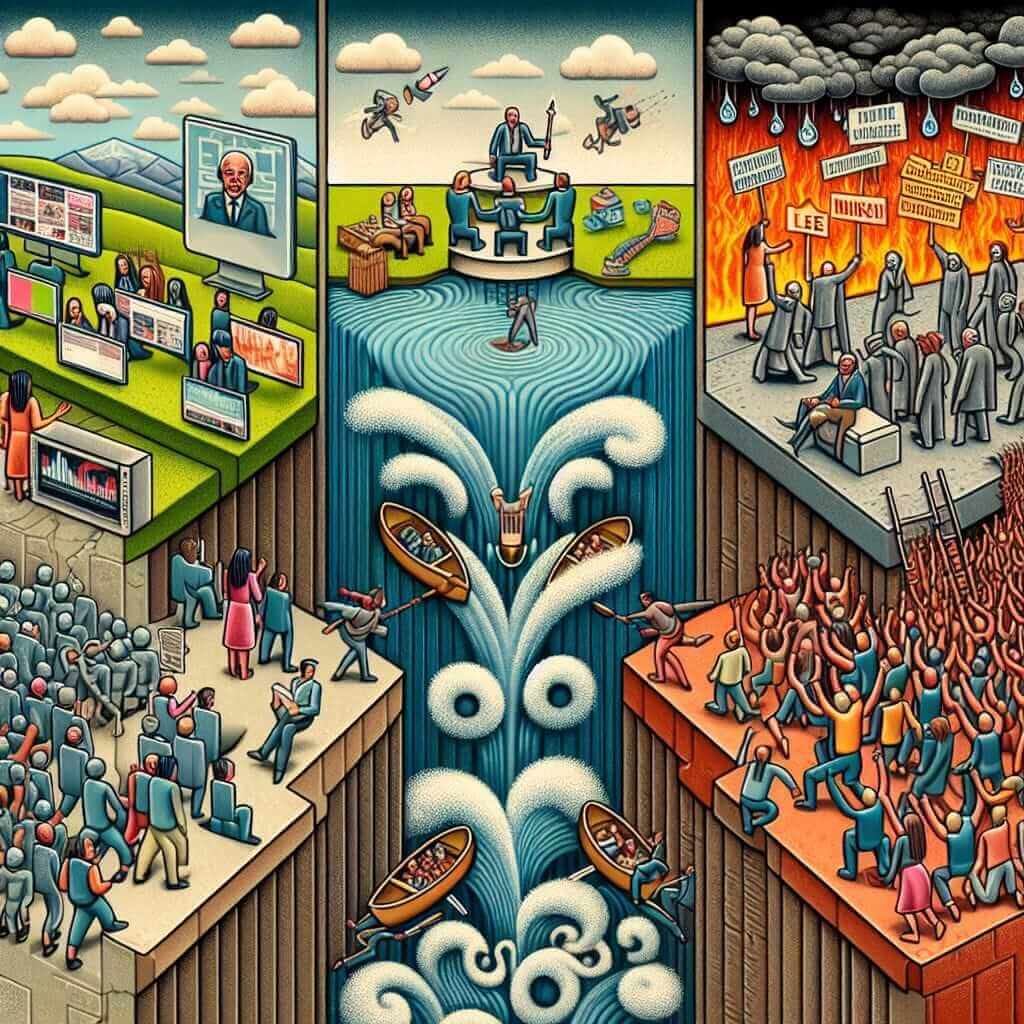The pervasive influence of social media on modern society is undeniable, and its impact on the political landscape has been particularly profound. This topic frequently appears in IELTS Writing Task 2, requiring candidates to analyze and articulate the multifaceted ways in which platforms like Facebook, Twitter, and Instagram have reshaped political campaigns.
This comprehensive guide delves into the intricate relationship between social media and political campaigns, equipping IELTS aspirants with the knowledge and vocabulary to excel in this essay type.
Below are some potential IELTS Task 2 questions related to this theme:
- To what extent do you agree that social media has democratized political campaigns?
- Discuss the positive and negative impacts of social media on political discourse and public opinion.
- Analyze the challenges and opportunities presented by social media for political candidates and voters alike.
Dissecting the Question: Social Media’s Impact on Political Discourse
Let’s choose the second question for our model essay:
Discuss the positive and negative impacts of social media on political discourse and public opinion.
This question requires a balanced discussion, exploring both the merits and drawbacks of social media’s influence on political conversations and public sentiment.
Model Essay: Navigating the Complexities of Social Media’s Political Influence
Social media has undeniably revolutionized the dynamics of political discourse and public opinion formation. While it has democratized access to information and empowered citizens, it has also introduced challenges such as the spread of misinformation and the polarization of viewpoints. This essay will delve into both the positive and negative facets of this phenomenon.
On the positive side, social media has dismantled traditional barriers to political participation. It provides a platform for citizens to engage directly with political leaders, voice their opinions, and participate in debates. This fosters a sense of transparency and accountability, compelling politicians to be more responsive to public concerns. Moreover, social media facilitates the dissemination of information at an unprecedented scale, empowering voters to stay informed about political issues and candidates’ stances. This increased accessibility to information has the potential to foster a more informed and engaged electorate.
However, the same features that enable these positive impacts also contribute to a darker side of social media’s influence on politics. The rapid spread of misinformation and “fake news” poses a significant threat to the integrity of political discourse. Fabricated stories and misleading content can go viral within minutes, influencing public opinion based on falsehoods. Furthermore, social media algorithms often create “echo chambers” where users are primarily exposed to information that confirms their existing biases. This can lead to the polarization of opinions and hinder constructive dialogue across ideological divides.

In conclusion, the impact of social media on political discourse and public opinion is a double-edged sword. While it has democratized political participation and increased access to information, it has also facilitated the spread of misinformation and exacerbated political polarization. It is crucial for individuals to be critical consumers of online content and for platforms to take responsibility in combating the spread of harmful content. Only then can we harness the transformative potential of social media for a more informed and democratic society. (Word Count: 298)
Key Considerations for Writing Your Essay
- Structure: Ensure your essay follows a clear and logical structure, with an introduction, body paragraphs, and a conclusion.
- Balanced Argument: Present a well-rounded discussion, acknowledging both the positive and negative aspects of social media’s impact.
- Supporting Evidence: Provide specific examples and evidence to support your claims.
- Vocabulary: Use a range of vocabulary related to technology, politics, and social change.
Essential Vocabulary for Discussing Social Media and Politics:
- Democratize (verb): /dɪˈmɒkrətaɪz/ – To make something more accessible to everyone.
- Discourse (noun): /ˈdɪskɔːs/ – Written or spoken communication or debate.
- Polarization (noun): /ˌpəʊləraɪˈzeɪʃən/ – Division into two sharply contrasting groups or sets of opinions.
- Misinformation (noun): /ˌmɪsɪnfəˈmeɪʃən/ – False or inaccurate information, especially that which is intended to deceive.
- Algorithm (noun): /ˈælɡərɪðəm/ – A set of rules followed by a computer in calculations or other problem-solving operations.
- Echo chamber (noun): /ˈekəʊ ˌtʃeɪmbər/ – An environment where people only encounter information or opinions that reflect their own.
- Transparency (noun): /trænsˈpærənsi/ – The quality of being open and honest in communication.
- Accountability (noun): /əˌkaʊntəˈbɪləti/ – The state of being responsible for something and liable to be called to account.
- Dissemination (noun): /ˌdɪsemɪˈneɪʃən/ – The act of spreading something widely.
- Electorate (noun): /ɪˈlektərət/ – All the people in a country or area who are entitled to vote in an election.
Conclusion: Mastering the Art of IELTS Writing
The intersection of social media and political campaigns offers a rich landscape for exploration in IELTS Writing Task 2. By understanding the nuances of the topic, developing a balanced argument, and utilizing relevant vocabulary, you can confidently tackle this essay type and achieve a high band score. Remember to practice regularly with diverse prompts to enhance your writing skills and boost your confidence on exam day.